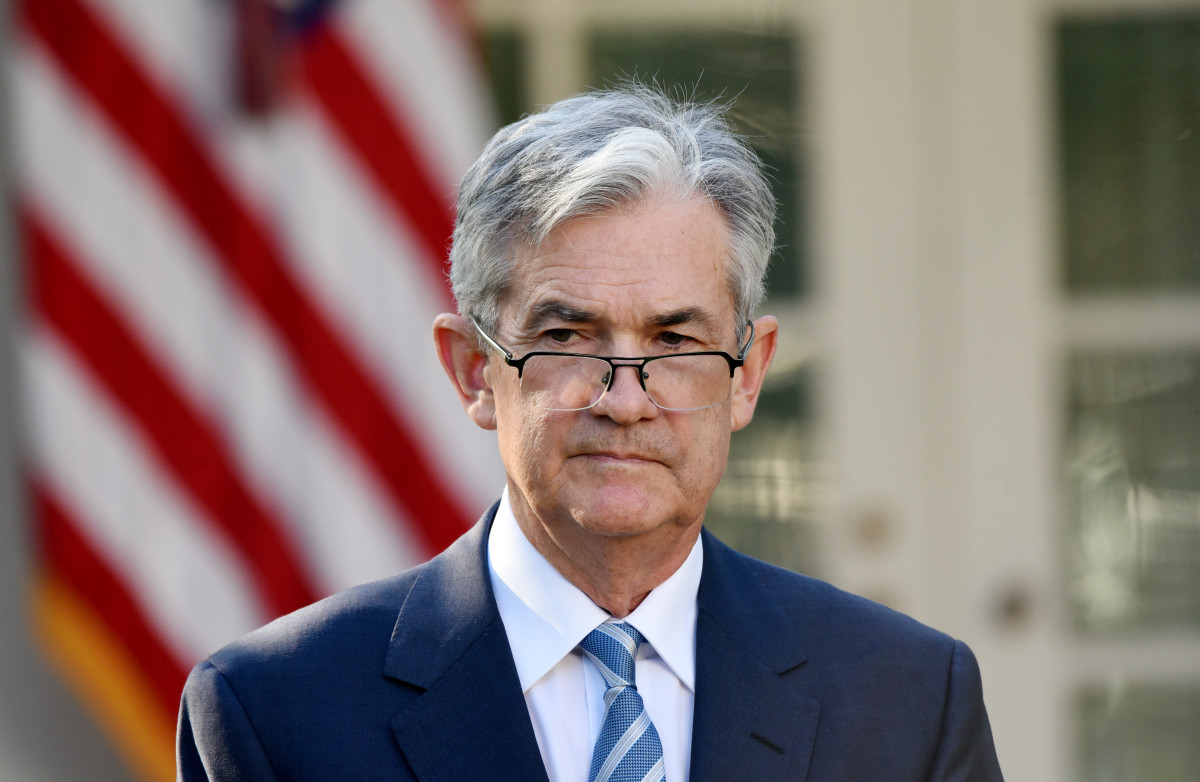
The Federal Reserve's ability to engineer a so-called soft landing for the world's biggest economy will face its sternest test of the year this week as investors, rattled by the historic surge in market volatility, brace for a key series of inflation and growth readings.
Last week's market upheaval included both a record spike in the market's closely tracked volatility gauge and its biggest retreat in history over the following four days. That has investors on edge heading into the final weeks of August amid concerns that the U.S. economy could be slowing into recession.
Labor-market data have been mixed but continue to suggest solid gains heading into the autumn. But softness in spending, activity and sentiment readings have given rise to concern that the economy's Wall-Street-beating resilience is beginning to crumble.
That could test the Fed's ability to deliver the so-called soft landing it has long hoped for, where inflation is returned to a consistent level of around 2% without tipping the economy into recession.
This week’s data dump pic.twitter.com/hI9PWGyfcZ
— Liz Ann Sonders (@LizAnnSonders) August 12, 2024
Bank of America Chairman Brian Moynihan spoke to this very risk during an interview on CBS's "Face the Nation," arguing that the Fed should cut rates as soon as possible as the economy slows and consumer tighten their belts.
The economy is "slowing down, and that's where we have to be careful, because we've won the war on inflation, it's come down. It's not where people want it yet, but we got to be careful that we don't try to get so perfect that we actually put us in recession," he said.
The executive said that Bank of America analysts aren't predicting that kind of outcome for this year.
"They've told people rates probably aren't going to go up, but if they don't start taking them down relatively soon, you could dispirit the American consumer," Moynihan added.

Olivier Douliery/Bloomberg via Getty Images
Wednesday's July Consumer Price Index report will go a long way toward defining the Fed's next steps. And while markets have already locked in bets on a September interest-rate cut, there remains some debate as to whether the central bank will opt for a conservative 0.25-percentage-point reduction or start lowering borrowing costs by a larger 0.5 point.
Is the economy 'stuck in the mud'?
"This week’s inflation data arrives at a key moment for the stock market, which is coming off its most volatile week of the year," said Chris Larkin, managing director for trading and investing at E-Trade From Morgan Stanley. "In the span of just a few weeks, the discussion has shifted from whether the economy has slowed enough to concerns it may be getting stuck in the mud."
"Investors will be looking for the numbers to land in a sweet spot — cool enough that no one will be second-guessing the likelihood of a September rate cut, but warm enough to push aside the recession concerns that have rattled the markets recently," he added.
Analysts are expecting monthly headline inflation of 0.2%, with an annual reading of 3.2%, unchanged from the previous month and still well ahead of the Fed's 2% target.
Related: Wall Street banks ring recession alarm
On the other hand, as Ian Shepherdson of Pantheon Macroeconomics notes, a benign core reading could drag down the recent three-month average to an annualized rate of 2.3%, with a potential dip below 2% in August if price pressures continue to abate in a slowing economy.
"The CPI data will not stand in the way of rapid Fed easing in order to bolster the slowing economy," he said.
Retail therapy for a lagging economy
RJ Assaly, chief market strategist at Toggle AI, says consumer spending might provide a better indicator for the "are we or are we not headed for recession debate."
The Commerce Department's July retail sales report on Thursday is expected to show headline spending rose 0.2% from June, but that gain is likely to have been the result of a notable bump higher in gasoline prices.
Core and control-group sales, which factor into the government's GDP calculations, are likely to have slowed.
"If inflation comes in lower than expected, and retail sales for Home Depot, Lowe's, and Walmart show that consumer spending is weak, it could increase recession concerns," he added.
Should that transpire, Assaly argues, the Fed, aiming to avoid "falling behind the curve, may become more aggressive, and that's where I think markets are likely to experience much more panic” in terms of an outsized September rate cut.
Seema Shah, chief global strategist at Principal Asset Management, isn't sure we're heading into such a binary outcome.
Related: Analyst makes key call on Walmart stock ahead of Q2 earnings
"Despite heightened market volatility driven by recession fears, Big Tech struggles, and technical challenges, underlying fundamentals still suggest limited economic weakness," she said.
"Markets may stay on edge this summer as they look to decipher the underlying strength of the U.S. economy and as valuation and technical extremes unwind, [but] strong household and corporate balance sheets suggest economic weakness should be limited," she added.
"Importantly, the Fed is set to start cutting rates in September at a gradual pace, a significant measure that could help counter growing economic concerns," Shah noted.
Worst. Recession. Ever.
Those concerns aren't yet evident in the Atlanta Fed's GDPNow forecasting tool, which aims to provide a real-time assessment of economic-growth prospects.
The most recent estimate, updated last week, suggests a current-quarter advance of 2.9%, unchanged from its prior forecast and a tick higher than the 2.8% Commerce Department estimate for the three months ended in June.

Two late-week indicators may prove more useful, however, in determining both the strength of consumer resilience and the spillover effects of the Fed's inflation fight into the real economy.
The Commerce Department will publish July housing starts data on Friday. New construction likely fell to an annual rate of 1.3 million units and lofty mortgage rates and record home prices continued to hammer demand.
Related: Mortgage rates tumble on bond market rally
The University of Michigan's benchmark reading of consumer confidence, meanwhile, is likely to have fallen from the 66.4 it reached in June, thanks in part to the hit from last week's global market turbulence and the uncertainty tied to the autumn presidential elections.
More Economic Analysis:
- Black Monday on Wall Street: 5 reasons stocks are plummeting
- After the Fed tipped markets over, now what?
- Jobs report triggers key recession warning signal as stocks plunge
"The big risk remains the election, as markets could be spooked by either outcome, depending on the policies," said Assaly of Toggle AI. "So far, we haven't seen a clear definition of policy from either platform, and until we do that uncertainty will pose a significant risk."
Beyond that, markets will look to both the Fed's Jackson Hole symposium on Aug. 22, and the likely signals Chairman Jerome Powell will provide on autumn rate cuts, as well as the highly anticipated fiscal-second-quarter earnings update from AI-market leader Nvidia (NVDA) on Aug 28.
Related: Veteran fund manager sees world of pain coming for stocks







